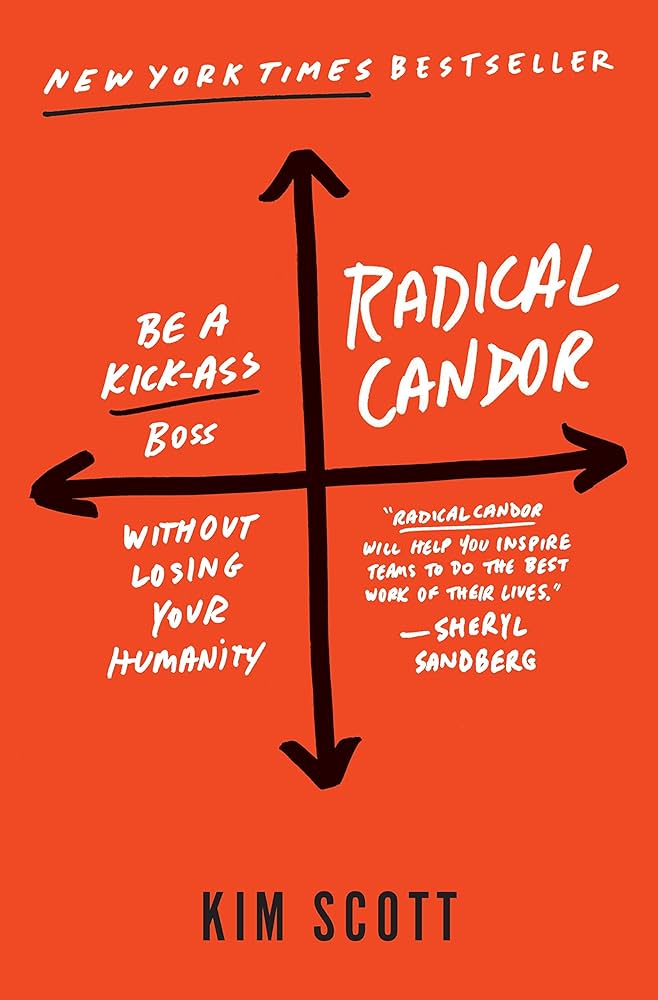“Make sure that you are seeing each person on your team with fresh eyes every day. People evolve, and so your relationships must evolve with them. Care personally; don’t put people in boxes and leave them there.” ― Kim Malone Scott
This book changed the way I thought about kindness. It explains clearly how dishonesty, even when we are protecting people, holds them back and takes away their opportunity to choose, to learn and to change. This doesn't mean blasting people with unwelcome truths, but it does mean having the courage to stay with them through the discomfort (theirs and yours) until you both get to a more comfortable place.
Synopsis
Radical Candor by Kim Scott is about how to be a great boss by giving honest feedback while still showing you genuinely care. It’s a concept that’s really reshaped how many people think about leadership and communication in the workplace.
At its heart, Radical Candor boils down to a simple but powerful framework: Care Personally and Challenge Directly. Kim Scott argues that truly effective leaders do both. They build strong, trusting relationships with their team members by showing empathy and getting to know them as individuals. At the same time, they aren’t afraid to give direct, clear feedback, even when it’s difficult, because they believe it’s essential for growth and performance.
Scott illustrates this concept with a 2×2 matrix, highlighting what happens when you miss one or both of these elements. If you care personally but fail to challenge directly, you fall into Ruinous Empathy, where you’re “nice” to a fault, leading to a lack of clarity and stagnation. If you challenge directly without caring personally, you’re engaging in Obnoxious Aggression, which might get results in the short term but destroys relationships and morale. And if you do neither, you’re in the realm of Manipulative Insincerity, which is the least effective and most damaging approach.
Ultimately, the book offers practical advice and real-world examples to help managers navigate these dynamics. It emphasizes the importance of building a culture where feedback is a regular, two-way street, where people feel safe to speak up, and where continuous improvement is the norm. It’s about empowering your team to do their best work, not by being a dictator or a pushover, but by being a thoughtful, honest, and supportive guide.
Key Points
- Care personally, challenge directly
- Avoid ruinous empathy
- Feedback fuels growth
- Build trust
- Lead with humility

